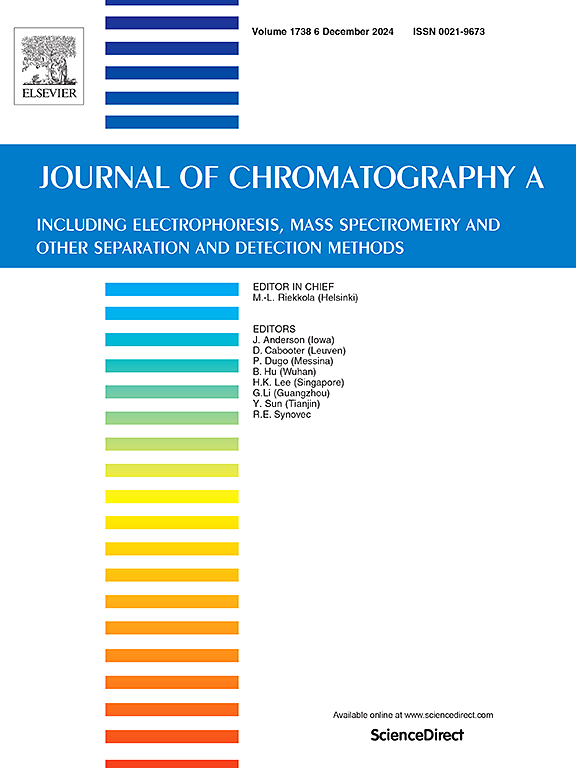Prediction of infinite dilution activity coefficients for compounds in water at 298.15 K using reversed-phase liquid chromatography
IF 3.8
2区 化学
Q1 BIOCHEMICAL RESEARCH METHODS
引用次数: 0
Abstract
Infinite dilution activity coefficients (γ∞) in water are valuable for various industrial applications. However, the experimental methods used to determine these coefficients can be tedious and labour-intensive, often requiring specialized expertise and training in specific techniques. As a result, predictive models are generally favoured over experimental methods for estimating infinite dilution activity coefficients in water. These predictive models rely on molecular descriptors to estimate the values of the coefficients. In this work the correlation of reversed-phase liquid chromatography retention factors to estimate infinite dilution activity coefficients in water was explored. Of the screened isocratic reversed-phase liquid chromatography systems the XTerra Phenyl stationary phase with a binary solvent composition of 70 % methanol (v/v) is the best retention factor correlation model with a prediction standard error of 0.226, and Fisher statistic of 1020.
用反相液相色谱法预测298.15 K水中化合物的无限稀释活度系数
水中的无限稀释活度系数(γ∞)在各种工业应用中是有价值的。然而,用于确定这些系数的实验方法可能是繁琐和劳动密集型的,通常需要专门的专业知识和特定技术的培训。因此,在估计水中无限稀释活度系数时,预测模型通常比实验方法更受青睐。这些预测模型依靠分子描述符来估计系数的值。本文探讨了反相液相色谱保留系数与水中无限稀释活度系数的相关性。在筛选的等容反相液相色谱体系中,以二元溶剂组成为70%甲醇(v/v)的XTerra苯基固定相为最佳保留因子相关模型,预测标准误差为0.226,Fisher统计量为1020。
本文章由计算机程序翻译,如有差异,请以英文原文为准。
求助全文
约1分钟内获得全文
求助全文
来源期刊

Journal of Chromatography A
化学-分析化学
CiteScore
7.90
自引率
14.60%
发文量
742
审稿时长
45 days
期刊介绍:
The Journal of Chromatography A provides a forum for the publication of original research and critical reviews on all aspects of fundamental and applied separation science. The scope of the journal includes chromatography and related techniques, electromigration techniques (e.g. electrophoresis, electrochromatography), hyphenated and other multi-dimensional techniques, sample preparation, and detection methods such as mass spectrometry. Contributions consist mainly of research papers dealing with the theory of separation methods, instrumental developments and analytical and preparative applications of general interest.
 求助内容:
求助内容: 应助结果提醒方式:
应助结果提醒方式:


